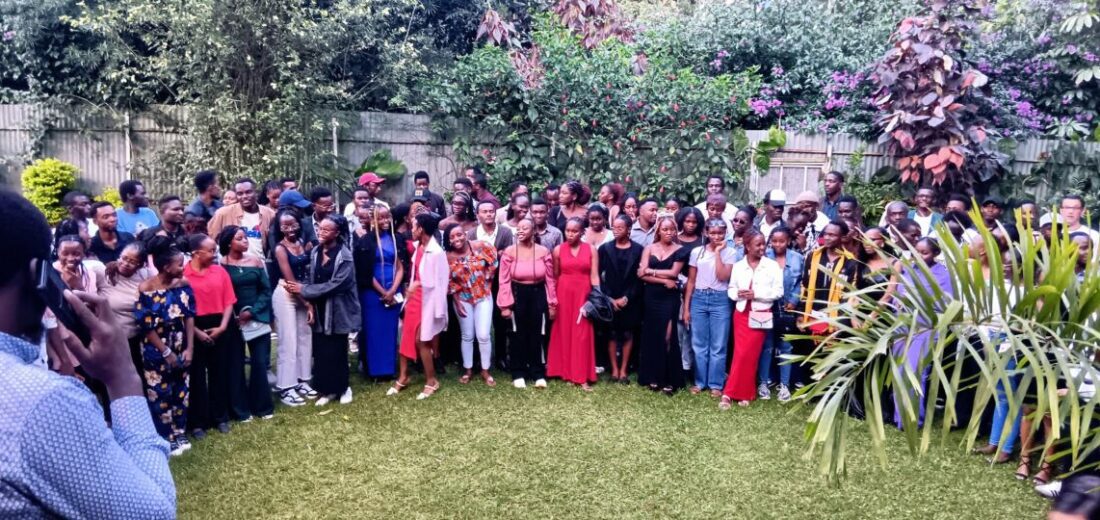
Development Doesn’t Have to Be Godless
In much of the development sector, faith in development is often misunderstood—viewed as something to manage, reform, or avoid. But in many communities, faith is not a private matter; it is a living code of ethics. When respected, it can offer exactly what inclusive systems need: moral clarity, trust, and a deeper commitment to fairness that no algorithm can replicate. Ignoring it does not make systems more neutral, it just makes them blind to how people actually live and work.
Fumbwe Hamisi, a devout Muslim entrepreneur from Kenya’s coast, co-founded a tech platform that refuses to see faith and business as opposing forces. At Nilltech Solutions, values like honesty, fairness, and integrity, rooted in his religious beliefs, are not sidelined. They are central to the company’s mission: building a digital economy that treats African freelancers with dignity.
But Hamisi did not build Nilltech alone. His co-founder, Anjela, is a German atheist who is equally outspoken about her beliefs, or lack thereof. She does not soften her scepticism of religion, yet she stands just as firmly for transparency, fairness, and respect for workers. Together, they have built a company that turns conventional assumptions on their head: that shared values, not shared beliefs, are what truly drive meaningful collaboration.
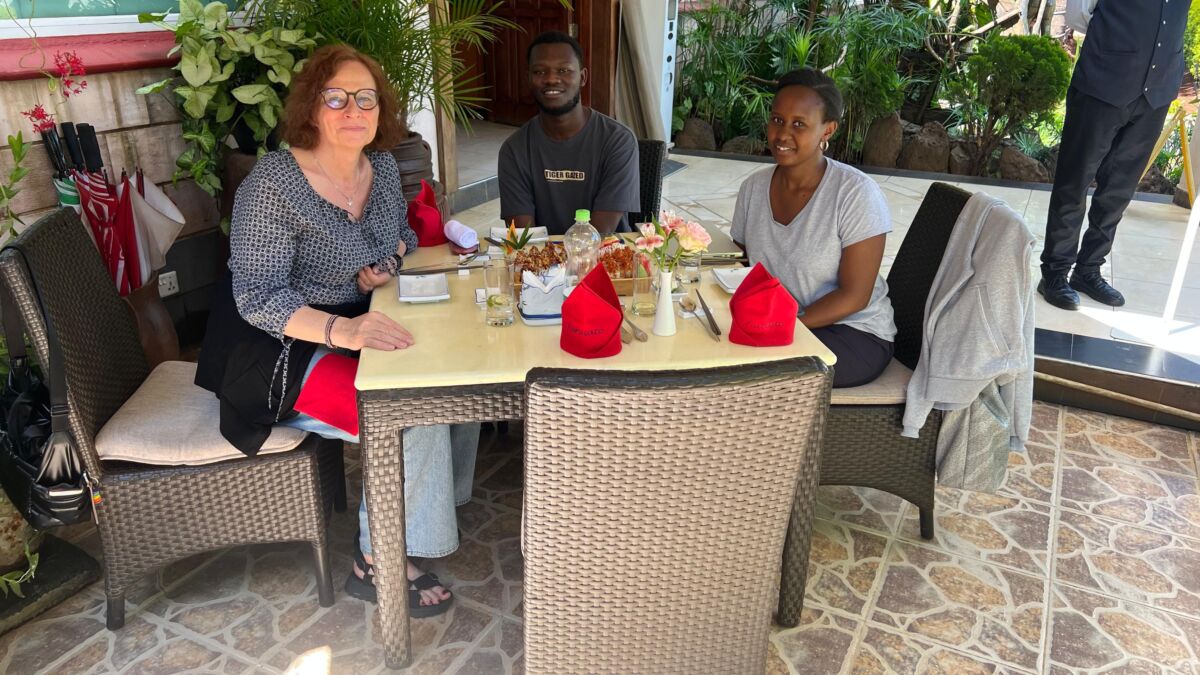
Their story is more than a portrait of unlikely business partners. It points to a bigger question facing the development sector today: how to build inclusive digital economies that respect cultural and religious identity while delivering fairness at scale.
In the development world, it is not hard to find reports or policy papers that cast religion as an obstacle to progress, a relic to be managed or modernised to make way for efficient systems and streamlined contracts. Faith is often portrayed as a source of complication, introducing inconvenient demands that must either evolve or yield to the logic of development.
But on Kenya’s coast, faith is not a private matter or cultural footnote. It is the air people breathe. Children rise before dawn for madrassa lessons, reciting Quranic verses by lantern light before heading to school. Traders murmur dhikr as they count coins in the shade of their stalls. Neighbours greet each other with blessings that are not empty courtesies but small, daily acts of trust and hope.
Here, religion cannot be separated from life. It shapes how debts are repaid, how neighbours are buried, and how fairness is defined; from whether today’s work can pay tomorrow’s school fees to what counts as justice or theft. For Fumbwe Hamisi, this was not a barrier to innovation, it was the foundation. His upbringing gave him a clear sense of what fairness in business ought to look like.
Yet even as he held his faith close, he worried it might hold him back. He had seen how quickly the wider world dismissed such devotion—as unprofessional, even backward. It was a tension he carried for years: the desire to honour the values that taught him integrity, alongside the fear that those same values would brand him as unfit for modern work.
But the problem was not just his. Across Africa, more than 85 percent of freelancers report late payments or feel pressured to underprice their services, just to stay competitive. Global platforms promise opportunity for anyone, anywhere, but in practice, they enforce an unspoken hierarchy. In this climate, faith in development becomes harder to sustain, as African freelancers are flagged for extra checks, offered lower rates, and too often treated as a risk, even when their work matches or exceeds international standards.
When Fumbwe Hamisi first stepped into the world of online freelancing, he did so like many young Kenyans, full of optimism. He believed that with enough hustle, he could bridge the distance between his small coastal town and clients in New York or Berlin. He studied tutorials on building the perfect profile, practised negotiation strategies, and trusted that the internet could finally flatten the old barriers of geography and class.
But that promise unravelled quickly. He remembers payment dashboards freezing without explanation, holding months of earnings hostage. Clients who vanished the moment they received the final files. Platforms that imposed endless verification hurdles—almost always targeting Kenyan users—under vague claims of ‘security,’ without ever clarifying the rules, eroding his trust in systems that claimed to support faith in development.
It was not just frustrating; it was wage inequality dressed as meritocracy. Exclusion disguised as fraud prevention. A system that claimed to offer equal opportunity, but quietly flagged certain accents, names, and countries as suspect from the start.
At times, Fumbwe blamed himself. Maybe he was not professional enough, or his English was not sharp enough. But late at night, a darker suspicion would creep in: maybe it was his name, Fumbwe Hamisi. Maybe it was the way as-salamu alaikum rolled too easily off his tongue. Maybe it was the prayer breaks that interrupted his workday.
What Fumbwe was up against was not just personal. It was a quiet, pervasive bias embedded in the global gig economy, one where ‘professionalism’ is often coded in Western norms that penalise African workers, religious expression, and non-Western rhythms of life.
The turning point did not come from a contract or a client. It came through a person: Anjela.
They met at Aiducation International’s Leadership Academy in Nairobi. Fumbwe arrived with low confidence, intimidated by the polished introductions and confident voices of other students. He remembers sitting silently through the icebreakers, unsure if he even belonged in the room.
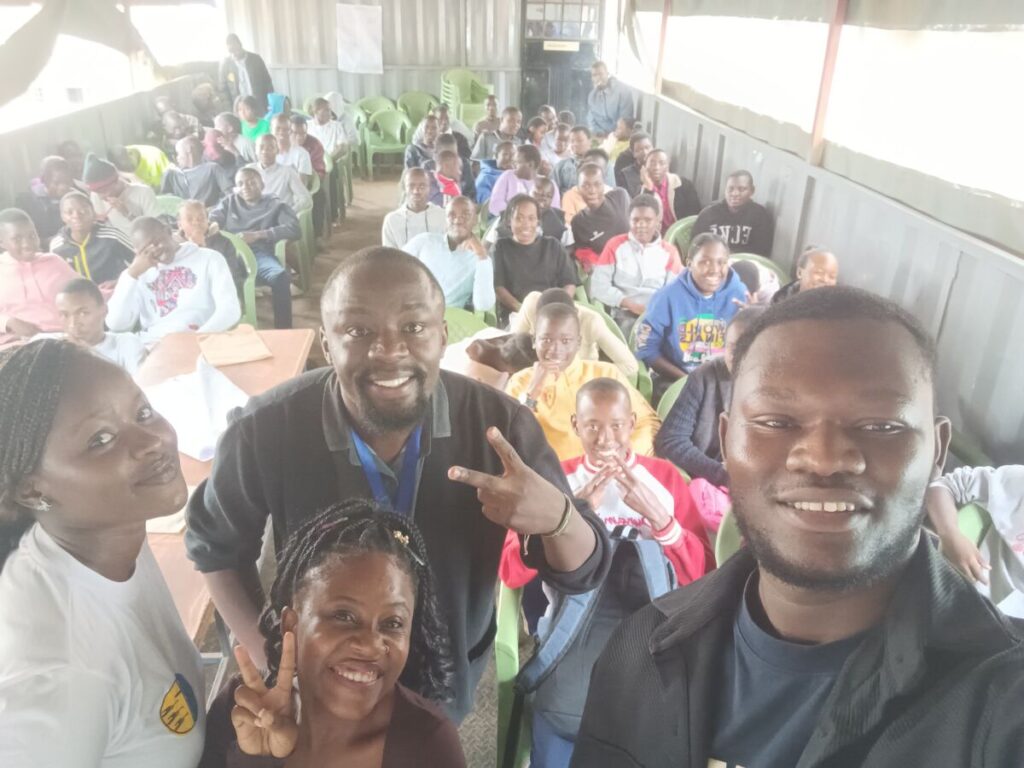
Anjela stood out immediately—older, articulate, and unflinchingly direct. She did not just avoid talk of God; she challenged the very need for one. Her disbelief was not veiled. It was sharp, unapologetic, and at first, jarring to him.
At first, he kept his distance. It was not dislike, it was discomfort. How do you connect with someone who seems to live in an entirely different world? Even saying hello felt like crossing a line he did not understand.
When he confided in his ustadh back home, he expected reassurance; maybe even a quiet nod to keep his distance. Instead, the teacher reminded him of a verse he had memorised as a child but never fully grasped:
‘Allah does not forbid you from those who do not fight you because of religion and do not expel you from your homes from being righteous toward them and acting justly toward them. Indeed, Allah loves those who act justly.’ (Qur’an 60:8)
It was not a command to convert her. It was a call to fairness and a challenge to listen, even in disagreement.
Their early conversations were cautious, sometimes awkward. Anjela was direct and unfiltered; she questioned his beliefs sharply. Fumbwe hesitated, unsure whether honesty would spark conflict. But beneath the discomfort, something unexpected took root: a shared frustration.
Both of them were angry, though from different vantage points. Anjela had hired African freelancers before. She had seen the double standards up close: delayed payments, condescending feedback, and the unspoken assumption that ‘African’ meant cheap or unreliable.
They kept circling the same question: Why did the system keep failing people who delivered quality work, on time, with integrity? ‘What if we try to fix this?’ they asked. ‘What if we build the platform we wish existed?’
They did not have a business plan, but they had conviction.
When they began building Nilltech, they were not interested in slapping better branding onto a broken system. They wanted to ask a harder question: What does it take to build a business where people do not have to lie about who they are?
For Fumbwe, that question cut deep. He was done pretending prayer breaks did not exist. That Ramadan would not alter his work rhythms. That Eid could be pencilled in like any other Western holiday. He was tired of hiding his identity just to appear ‘professional.’ His faith was not a personal quirk; it was the architecture of his ethics. In his view, faith in development was not a liability, but the framework that shaped how he honoured contracts, spoke to clients, understood time, trust, and the obligation to deliver on a promise.
Religion, for him, was not a liability to manage. It was the reason his word meant something. Anjela did not share his faith, but she respected its clarity. She did not pretend to believe in God, but she never treated his belief as a problem to solve or an awkward fact to politely overlook. Her questions were often sharp, sometimes sharp enough to sting, but never meant to undermine. She wanted to understand, truly understand, what it would take to build a company where two worldviews could coexist fully, without either one needing to shrink, hide, or apologise.They talked about everything; honestly, and sometimes uncomfortably. Fumbwe explained why prayer times were not negotiable, and why they would not be moved to accommodate meetings. Anjela laid out why European clients expected strict quarterly planning, and how timelines carried weight in her world. He described how fasting during Ramadan changed his energy, his focus, and his daily rhythms, showing how faith in development could directly shape workplace culture and collaboration. She listened—closely. She adjusted calendars, restructured launch schedules, and began anticipating his needs before he voiced them.
It became a practice in trust and translation. A form of respect that did not erase difference but worked to honour it.
For development actors seeking to build fairer work ecosystems, models like these offer a valuable lesson: inclusion does not come from erasing difference, but from operationalising it. The platform embeds respect, religious accommodation, and ethical clarity into the very architecture of its digital workplace, showing that dignity at scale is possible without cultural flattening.
Slowly, that ethos began to shape the team itself. Muslim staff were not expected to skip prayers to ‘fit in.’ Christian team members did not have to explain why Sundays were off-limits. Secular developers were not asked to silently endure religious references they did not share. The standard was simple but radical: everyone was expected to show up fully and to respect others who did the same.
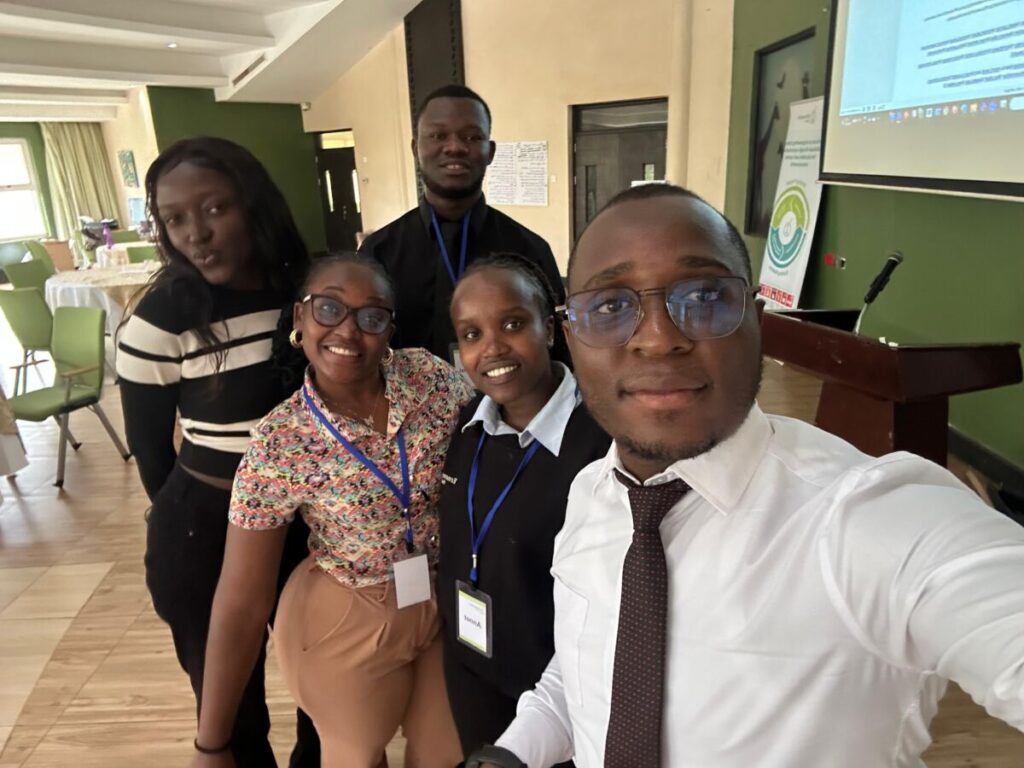
They wrote contracts that were clear and specific, not buried in legalese that only protected clients. They explained payment timelines upfront and honoured them. They staffed dispute resolution with people who had freelanced themselves.
In contrast to conventional freelancing platforms built on algorithmic standardisation and impersonal transactions, Nilltech foregrounds relational trust, cultural responsiveness, and lived experience. It is a values-driven alternative; one that reimagines the digital labour economy around inclusion, not just efficiency, and proves that faith in development can coexist with innovation.
For Fumbwe, this was more than business. It was dawah in its most grounded form not preaching, but living. Not performance, but practice. A call to integrity. ‘My faith does not allow me to build something that preys on the vulnerable,’ he says.
And Anjela, though she did not share his faith, aligned with its core. She saw in his religion the same moral imperative she carried within herself: to do right by people, even when no one is watching. That shared ethic, not a neatly worded mission statement, became Nilltech’s spine.
Still, even with all the intentionality, Nilltech is not perfect. Fumbwe is quick to acknowledge its limits. ‘Management is a big limitation,’ he says plainly. ‘Good managers are expensive. As a startup, we cannot always afford them, and that means we make mistakes that cost us.’
He also knows not every freelancer they train will succeed. ‘When I fail pitching to clients myself, it hits hard,’ he admits. ‘There is no one coming to save you. You are on your own. You have to fight.’
Cash flow remains uncertain. Some clients still baulk at fair rates, forcing difficult choices or walking away from deals. And building a trust-based model, especially one rooted in lived experience rather than algorithms, takes time. It cannot be rushed or automated.
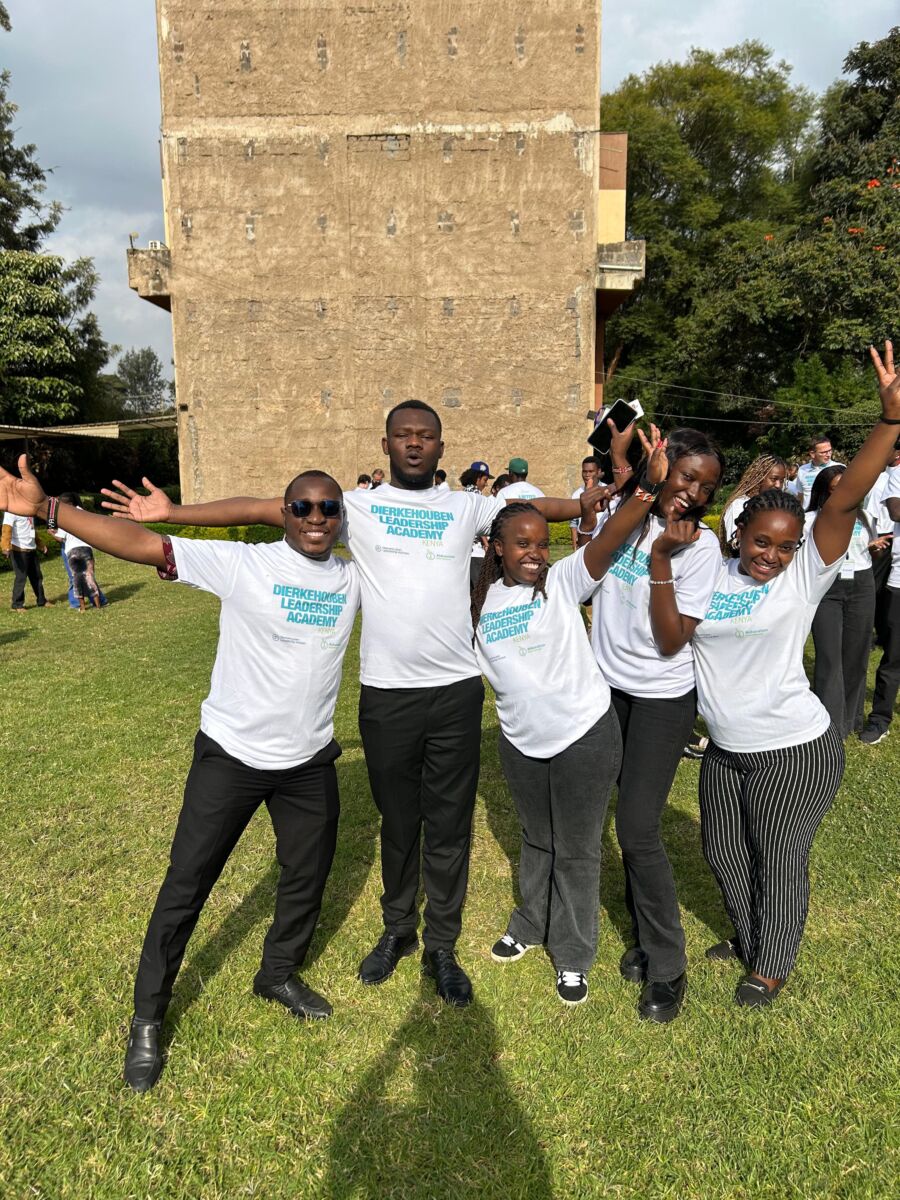
Over the past year, Nilltech has directly mentored ten freelancers through a hands-on process that goes far beyond technical training. In this approach, faith in development is not sidelined; participants are not just taught to code or design, they are guided through real client interactions, coached on negotiation, and encouraged to stand their ground in an ecosystem that routinely undervalues African talent.
‘It is not just about writing code or design,’ Fumbwe explains. ‘It is about teaching someone how to find clients, and how to hold their ground so they get paid fairly.’ Some of those freelancers have gone on to land international clients or travel abroad for work. ‘That makes me proud,’ he says. ‘Seeing someone pay rent or school fees without begging anyone.’
And the problem they are tackling is not limited to Kenya. A 2023 global study by Fairwork found that 31% of platform workers had experienced non-payment, while 38% faced delayed payments. Most major freelancing platforms, the report noted, failed to meet minimum standards for fair pay, transparent contracts, and effective dispute resolution.
‘This is common all over Africa,’ Fumbwe says. ‘Freelancers here are in an underserved market. Clients think we are cheap or risky. But I have seen people here deliver better than in Europe. The system just does not believe it yet.’
That context matters. Nilltech is just one small, stubborn effort, but it is part of a growing movement to reimagine how the global gig economy values African talent. Its ethic-first model does not just connect freelancers to work, it redefines what fair work can look like, centring transparency, dignity, and identity in every client relationship.
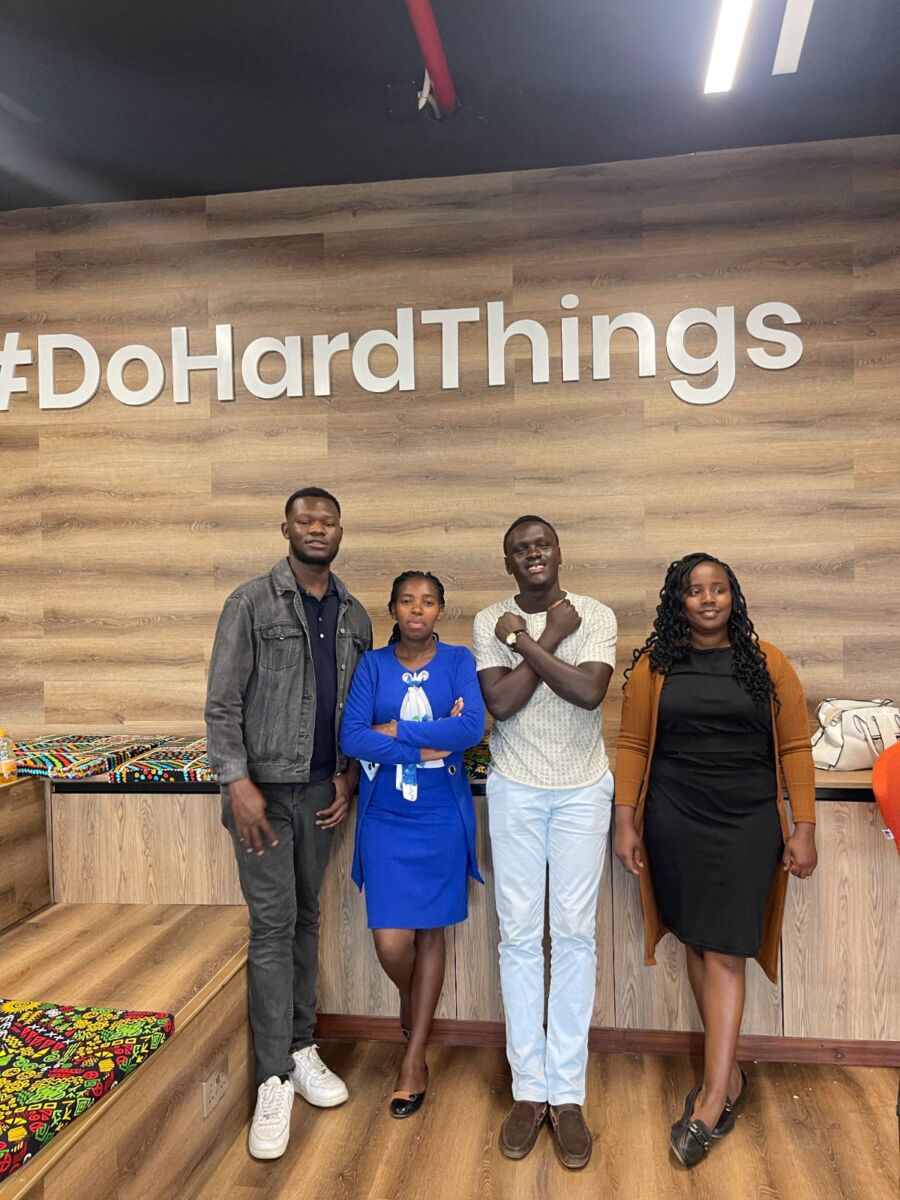
It has not been perfect. There have been missed deadlines, failed pitches, and hard lessons. But for every setback, there have been quiet victories that do not show up on spreadsheets: nights when a developer could log off knowing rent was covered. Days when school fees were paid, without apology or shame. Projects that shipped not because someone skipped Eid or Sunday service out of fear, but because timelines had been negotiated honestly, and with respect a testament to how faith in development can guide business practices toward dignity and fairness.
Clients noticed too. They did not see excuses, they saw clarity. A company that told the truth about its limitations and planned accordingly. A team that did not overpromise but consistently delivered on what it committed to.
For Fumbwe, that was the point. Religion did not get in the way of collaboration, it demanded it. It required fairness even when it was inconvenient. It insisted on dignity, even when the market treated workers as disposable.
In a sector where efficiency often outweighs equity, and neutrality is assumed to be the safest standard, this model offers a quiet but radical challenge to a core assumption: that inclusion requires sameness. Instead, it shows that systems grounded in moral clarity, whether rooted in faith in development or shared ethics, can foster fairness—not in spite of identity, but through it.
Fumbwe never saw faith as something to leave outside the office door like muddy shoes. It was the very reason the office existed. Every policy they drafted, every contract they signed, every line of code they shipped had to pass one test: Is this just?

Leave a Reply